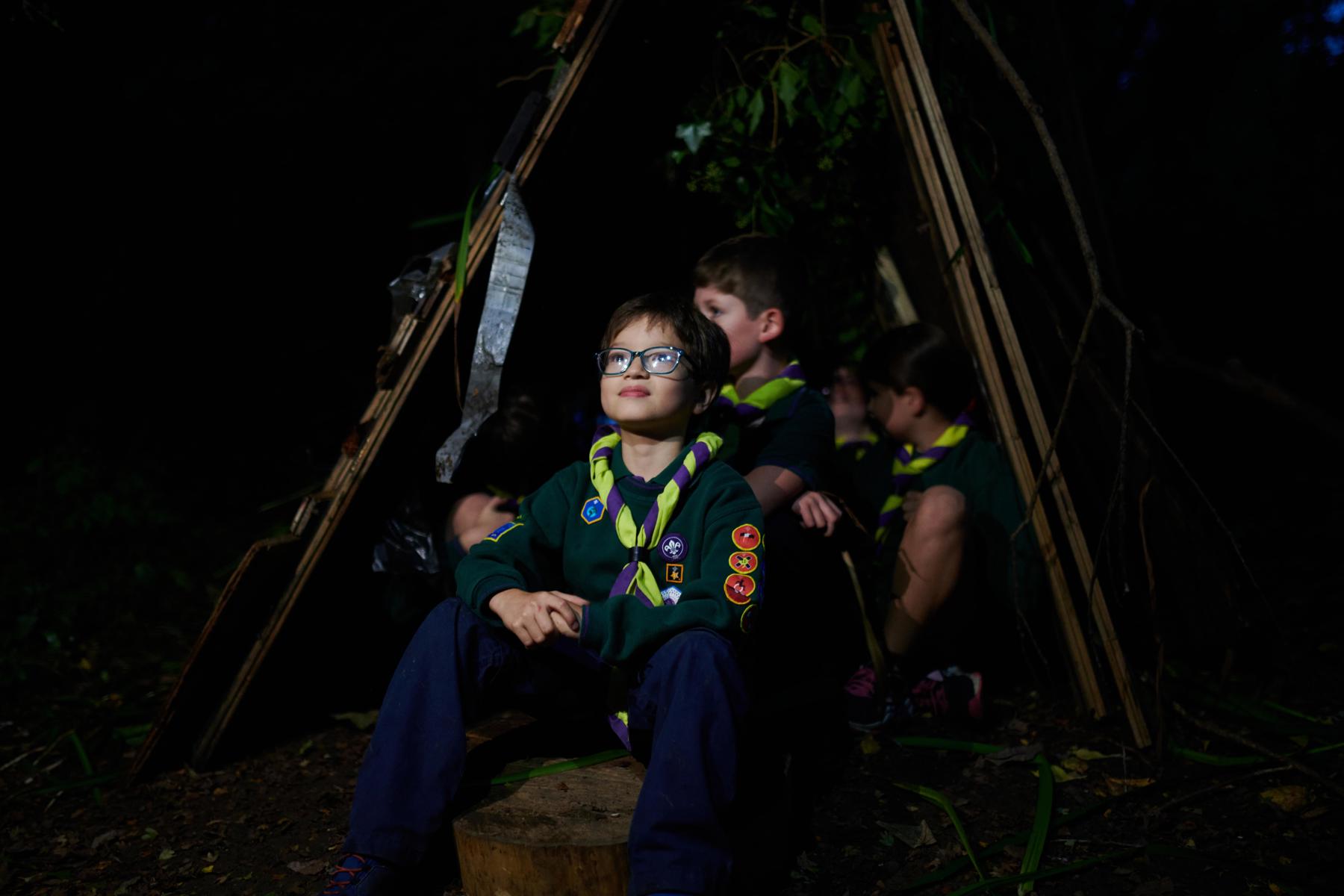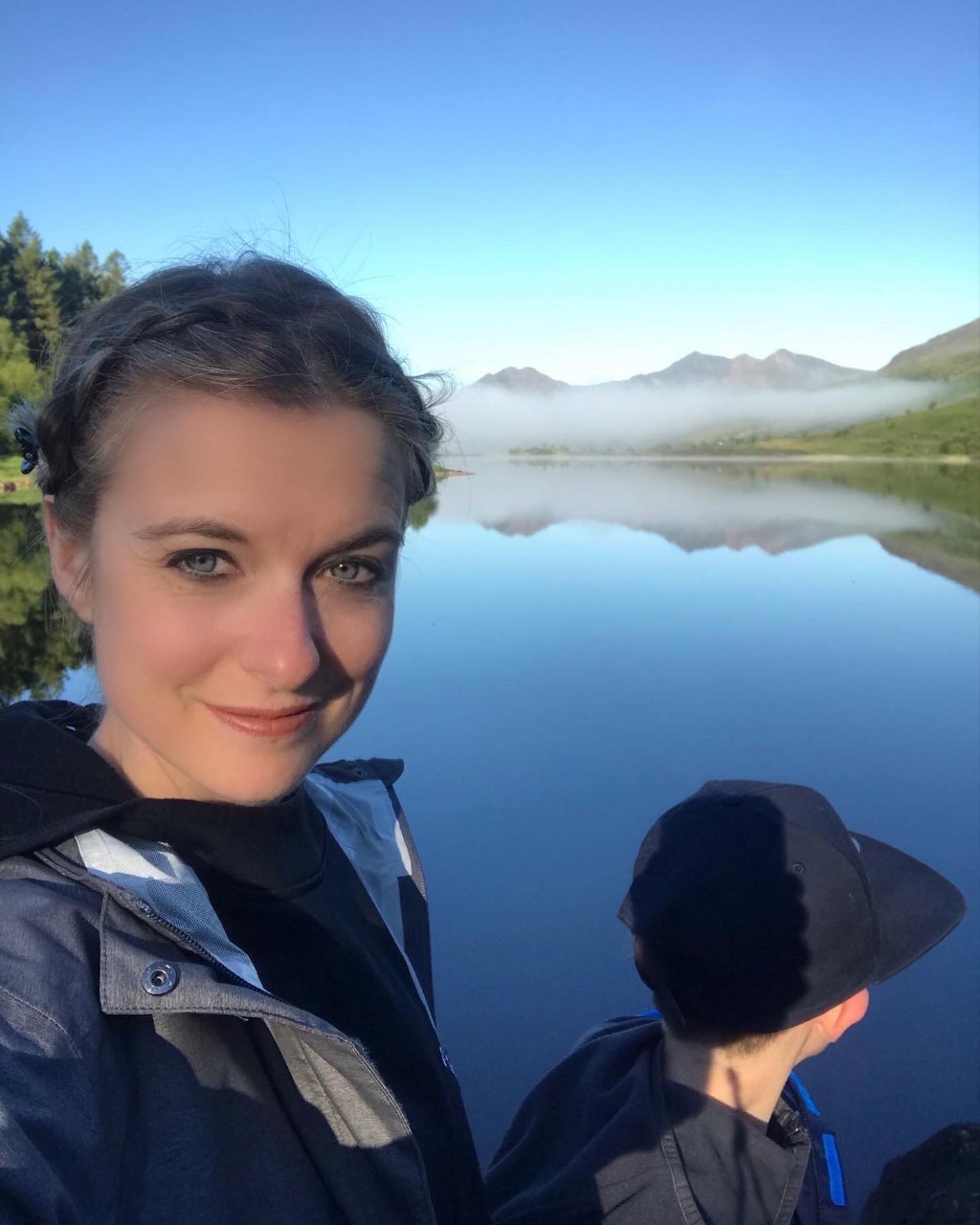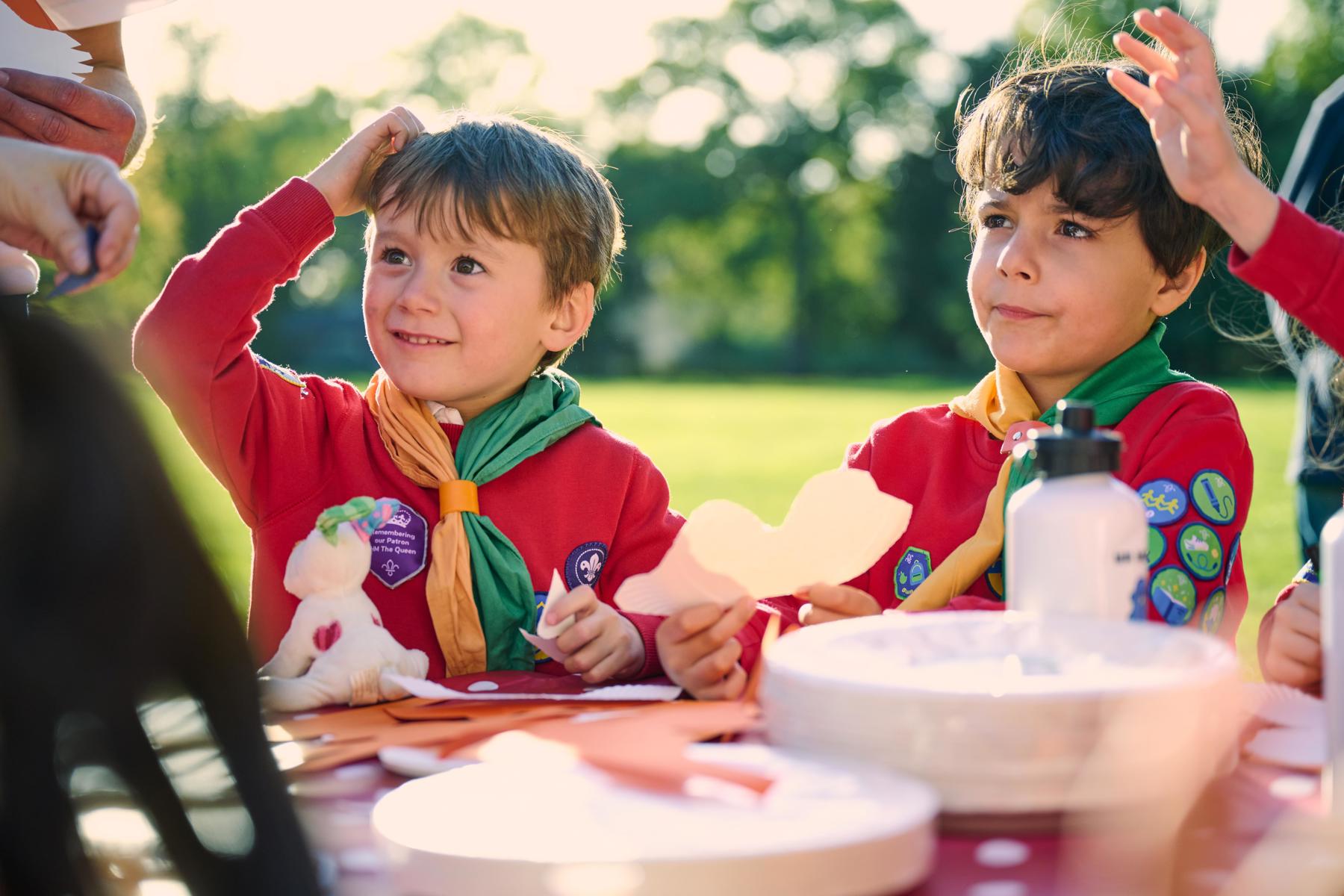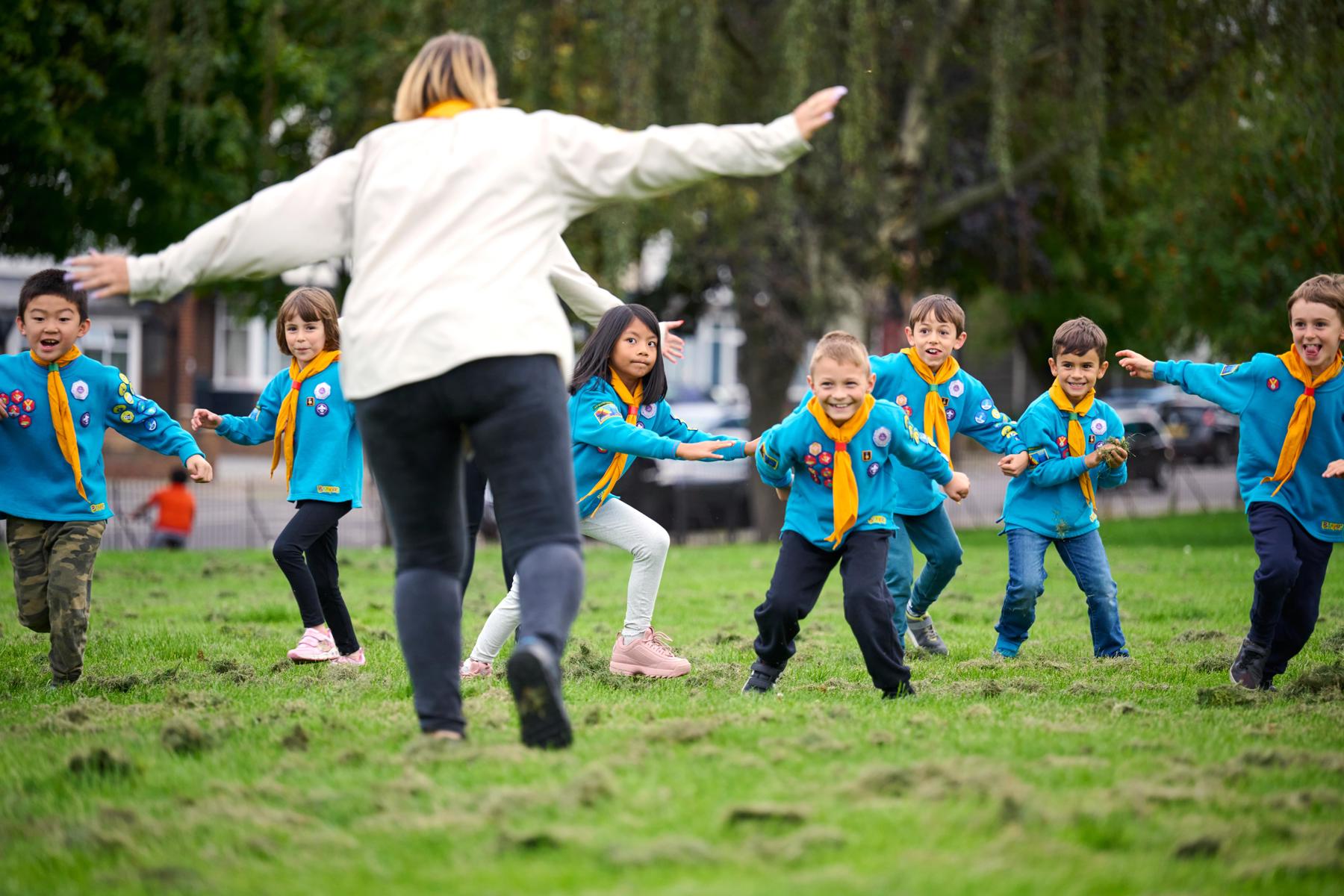How to help young people prepare for their first camp or sleepover
Camps and sleepover are those special times when young people make brilliant memories that last a lifetime. However, preparing for a first trip away from home, even for a night or two, may be a little worrying. Here's some great advice to make sure young people, as well as parents and carers, are ready.
That’s why we’ve called in the experts.
Lucy Cox is a hugely experienced Scouts volunteer and mum. Lucy received the Chief Scout's Commendation for her work during lockdown. Lewis Foster, from Go Outdoors, is also a Scouts volunteer and a Queen’s Scout Award holder. They know everything there is to know about camping.
Together, Lucy and Lewis have come up with some advice that’ll make a first overnight trip that little bit easier.

Worries, nerves and homesickness
Lucy: The thing is, when you’re young, being away from home for a day or two can seem like a REALLY big deal. Any break from routine can unsettle some young people. So the important thing is to be aware of worries, without letting concerns become the focus.
Lewis: One of the best ways of avoiding nerves is to talk about what'll happen and discussing things, such as sleeping arrangements and mealtimes. Telling the young people about the exciting programme they can expect gives them things to look forward to. If they feel like they're ‘in the know’, they’ll be much less nervous.
Lucy: Inevitably, we see a bit of homesickness at camp or sleepovers. It’s not always the youngest who feel it. I think it’s best to chat about it beforehand. Explain that feeling ‘homesick’ is different to being or feeling physically sick. It just means being sad to be away from home and your normal routine. Make sure the young person knows the leaders are there to help and talk to, so they should be OK.
Lewis: Try to avoid telling them you’ll come and pick them up if they don’t like it, as this may affect their confidence. Instead, focus on your young people being surrounded by friends and volunteers who can help, emphasising the trip is only a short one. Getting ‘stuck in’ is the best way to enjoy the experience.
Lucy: A good idea is to try a ‘dry run’ of being away from home overnight. Set up a stay with another trusted adult, such as a family member, to get them used to being away from home. Because Scout camps and nights away are always so busy, with everyone having so much fun, hopefully there shouldn’t be time for too much homesickness.

Preparing for the camp or sleepover
Lewis: Spending a little time with your young people, before their first camp or sleepover, going through some basic skills can really pay off.
Lucy: I couldn’t agree more. Already knowing how to do these things will make the whole trip feel that bit less overwhelming.
How to roll a sleeping mat and repack a sleeping bag
Lewis: Rolling a sleeping mat and packing up a sleeping bag sound quite basic tasks, but they can be hard if you’ve never done them before. There’s no great skill involved, just a bit of practice. You could make this a fun activity at home before nights away. Even try doing it against the clock!
How to wash and get dressed on their own
Lucy: Especially with the younger ones, getting ready independently can feel like a big task. Encourage them to practice brushing their teeth and hair, getting dressed and washing their face on their own. They may do this already, but if they don’t, a little practice will make it feel like much less of a hurdle at a sleepover or camp.
How to pitch a tent
Lewis: Even with the best designed tent, if you’ve never put one up before, it can seem tricky. Pitching a tent can be loads of fun, so why not spend some time practising in the garden or in the living room? That way, it won’t be completely new to your young person when their first camp or sleepover comes around. There're some great Go Outdoors YouTube videos on setting up tents.
Doing the washing up
Lucy: Do your kids do the washing up at home? Make it fun and get them involved. It’s a real win-win, as it’s great skill for them to learn, helps you out and prepares them for camp. If they get a taste for it, you could end up with a full-time mini kitchen helper. Remind your young person that, when it comes to helping in the kitchen, there're Scouts Super Chef, Cook and Chef badges up for grabs too!

Packing to go
Lucy: Packing the right way is really important. It can mean the difference between a stressful and a stress free few nights away.
Lewis: First up, what not to take. Young people probably won’t need mobile phones, cameras, consoles, or tablet computers. They might to get lost or break, so leave them at home. If your young person needs to bring a phone, such as for a medical reason, speak to the volunteers to see if they’ve a safe storage option/usage policy while on camp.
Lucy: What should you take? Your group will provide you with a list. Don’t forget things, such as sun cream, and remember everything needs to be labelled. You might want to suggest bringing a teddy or a book for them to read. My advice is, if it’s a precious or expensive item, don’t bring it.
Lewis: Having their own kit, to use on camp, gives young people a sense of responsibility and ownership. This means there’s more chance they’ll use everything they take and (importantly) bring it all back! As Lucy says, label everything. Permanent marker initials, stickers or engraved names on items helps the young person, or a volunteer, find a bowl or coat when several people turn up with the exact same item.
Lucy: It’s a good idea to pack with the young person. Discuss what each item will be used for as you go. You can talk about what to wear at night-time or if there’s bad weather. Perhaps include a list or a photo record of everything that goes into the bag. This’ll help with getting everything packed up again at the end of camp.
Lewis: Separating clothes and kit into labelled or coloured bags can sometimes help young people to keep organised. You could pop in an extra bag for dirty clothing to go in. You could have a bag for plates and cutlery too, so a fork doesn’t get lost among their dirty clothes!
Lucy: Remember, if you don’t have some items, talk to your group before buying anything. They may have spare kit or good advice on where to buy it second-hand.

Some final thoughts
Lucy: Young people sometimes get upset as they’re leaving. It’s understandable and can affect both very young and older Scouts. Setting the tone as they go is important. I‘d avoid saying ‘Goodbye’, which sounds quite final, and try ‘Have fun!’ or ‘See you soon’ instead. If anyone does get upset, it’s not the end of the world. They’ll soon get into the swing of things on nights away.
Lewis: If you've any concerns, chat with the volunteers, who’ll be more than happy to help. Tell them in good time about any additional needs, bed-wetting, allergies, dietary needs, phobias, sleep walking, or anything else they should know. Your young person won’t be the first, and doing this will help the volunteers plan and make sure the support they need is in place. This might be something as simple as making sure tent allocation is with friends or adjusting elements of the event programme.
Lucy: As someone who’s led camps and nights away before, I’d recommend that you help the volunteers as much as you can, by getting forms and payments to them as quickly as possible. They’ll hugely appreciate it. Don’t forget to say thank you, too. It takes a LOT of work to give your young people an amazing experience.
Lewis: While your young person is at their first camp or sleepover, it’s natural to worry about them, but try not to. We’d recommend you keep yourself busy while they’re away or take the opportunity to completely relax. Remember, they’ll be having an amazing time. Get ready for lots of stories, and washing, when they return home!

Thank you to Lucy and Lewis for your expert advice.
Find out more about Scouts camps and sleepovers.
Thanks to Go Outdoors for supporting activities like the Nights Away Staged Activity Badge.
See Go Outdoors’ website for more on the great work they do with Scouts.